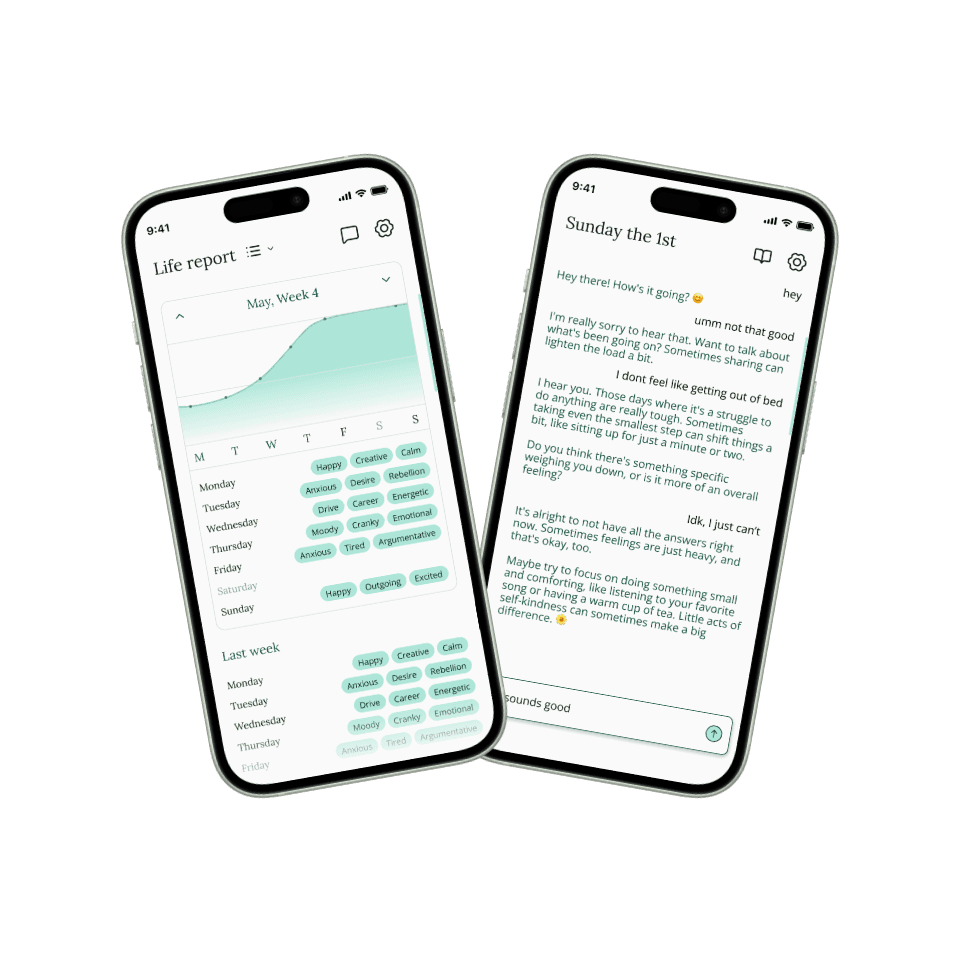
Remembering what to discuss in session
Remembering what to discuss in session
May 16, 2024
May 16, 2024
Therapy sessions can feel like a precious window of opportunity to unpack what's been weighing on you. However, once you're sitting across from your therapist, it's surprisingly easy to go blank on what you wanted to discuss. Maybe your mind freezes up, or the session quickly gets derailed. Suddenly, you've reached the end without properly covering those issues that felt so pressing beforehand.
If this scenario sounds familiar, you're not alone. The act of simply showing up and allowing yourself to be vulnerable can muddle our ability to proactively shape the session. But with a little intention and preparation, you can ensure you make the most of your valuable therapy hour. Here are some tips:
Keep a Therapy Journal
Between sessions, keep a running document or notebook where you can jot down any issues, thoughts, or events from daily life you want to process with your therapist. Review your notes before your appointment to refresh your memory on key discussion points. This simple practice ensures you don't lose track of important material in the shuffle of life.
Create a Running Agenda
In addition to journaling, you can create a running agenda with bullet points of what you hope to cover each session. This gives you an easy reference to quickly re-orient yourself once the session begins, rather than trying to remember everything off the top of your head. Don't worry about being too structured - simply having a general outline can reduce overwhelm.
Do a Mind Check-In
As you're headed into your appointment, take a few minutes of quiet to pause and tune into yourself. Notice what thoughts, feelings, memories or situations tend to be top-of-mind. Make a mental (or written) note of anything pressing that surfaces so you can loop your therapist in right away, before the session veers in another direction.
Voice Your Intentions
At the start of each session, don't hesitate to very clearly lay out what you hope to discuss or work through while you're there. You can say something like "I have a few key things I really want to make sure we cover today..." to anchor the conversation from the outset. Your therapist will likely appreciate the focus.
Discuss Past Session
If you had a particularly insightful or challenging previous session, let your therapist know you want to continue building on it or unpack it further this time. You can pick up where you last left off, ensuring closure or deeper exploration instead of getting sidelined by new material.
Be Transparent
If at any point you feel the session is going off the rails or you're having trouble focusing, say so! Your therapist likely won't be offended - they'll appreciate you self-correcting in the moment so you can reorient. Transparency about where your head is at allows them to better guide the conversation.
While spontaneity and the ability to go with the flow are valuable in therapy, having a general game plan for what you hope to accomplish can make sessions feel much more productive and satisfying. By getting intentional about directing the dialogue, you're maximizing that dedicated hour of self-exploration. The work itself can then deepen in a way that produces more insights and lasting change.
Therapy sessions can feel like a precious window of opportunity to unpack what's been weighing on you. However, once you're sitting across from your therapist, it's surprisingly easy to go blank on what you wanted to discuss. Maybe your mind freezes up, or the session quickly gets derailed. Suddenly, you've reached the end without properly covering those issues that felt so pressing beforehand.
If this scenario sounds familiar, you're not alone. The act of simply showing up and allowing yourself to be vulnerable can muddle our ability to proactively shape the session. But with a little intention and preparation, you can ensure you make the most of your valuable therapy hour. Here are some tips:
Keep a Therapy Journal
Between sessions, keep a running document or notebook where you can jot down any issues, thoughts, or events from daily life you want to process with your therapist. Review your notes before your appointment to refresh your memory on key discussion points. This simple practice ensures you don't lose track of important material in the shuffle of life.
Create a Running Agenda
In addition to journaling, you can create a running agenda with bullet points of what you hope to cover each session. This gives you an easy reference to quickly re-orient yourself once the session begins, rather than trying to remember everything off the top of your head. Don't worry about being too structured - simply having a general outline can reduce overwhelm.
Do a Mind Check-In
As you're headed into your appointment, take a few minutes of quiet to pause and tune into yourself. Notice what thoughts, feelings, memories or situations tend to be top-of-mind. Make a mental (or written) note of anything pressing that surfaces so you can loop your therapist in right away, before the session veers in another direction.
Voice Your Intentions
At the start of each session, don't hesitate to very clearly lay out what you hope to discuss or work through while you're there. You can say something like "I have a few key things I really want to make sure we cover today..." to anchor the conversation from the outset. Your therapist will likely appreciate the focus.
Discuss Past Session
If you had a particularly insightful or challenging previous session, let your therapist know you want to continue building on it or unpack it further this time. You can pick up where you last left off, ensuring closure or deeper exploration instead of getting sidelined by new material.
Be Transparent
If at any point you feel the session is going off the rails or you're having trouble focusing, say so! Your therapist likely won't be offended - they'll appreciate you self-correcting in the moment so you can reorient. Transparency about where your head is at allows them to better guide the conversation.
While spontaneity and the ability to go with the flow are valuable in therapy, having a general game plan for what you hope to accomplish can make sessions feel much more productive and satisfying. By getting intentional about directing the dialogue, you're maximizing that dedicated hour of self-exploration. The work itself can then deepen in a way that produces more insights and lasting change.
View more insightful blog articles
Today's tune



Track your mental health and get support between sessions with Verba
Learn more

Track your mental health and get support between sessions with Verba
Learn more

Track your mental health and get support between sessions with Verba
Learn more

Advait Naik
Advait is the founder of Verba and works at the intersection of psychology, design and technology to create a product that can help humans be more self aware through clarity